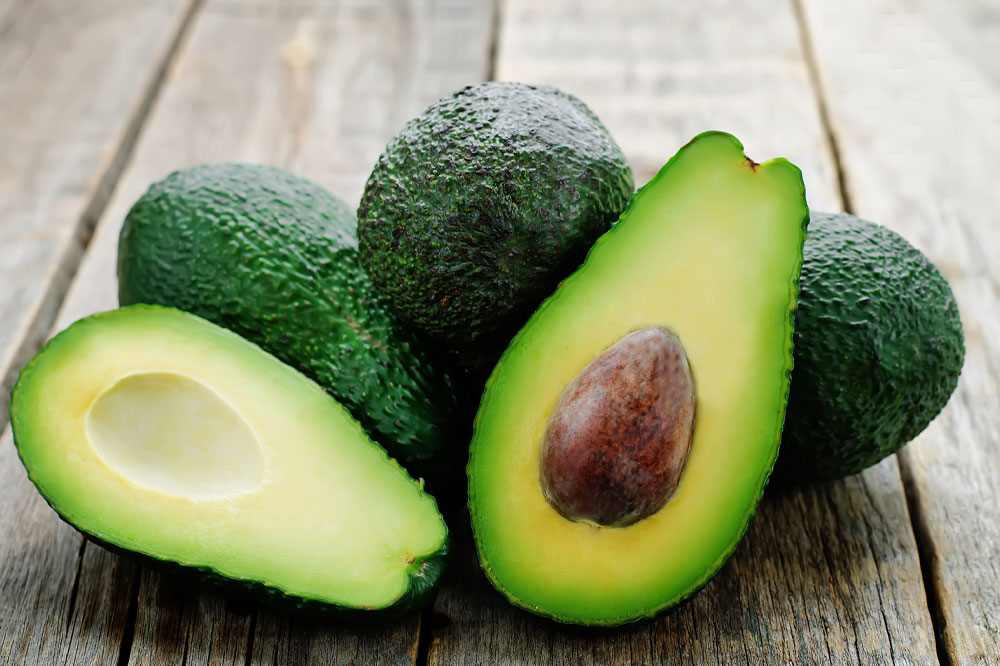Avoid feeding these 16 toxic foods to pets

When our pets stare at us while we eat, it can be difficult to resist their pleading gaze. However, giving in to their begging behavior can create a bad habit we don’t want to encourage. In addition, some human foods can be toxic to our pets and cause them to become very ill. So, it’s important to resist the urge to share our food with our furry friends. Some foods to avoid are:
Caffeine
Tea, coffee, soda, and other caffeinated beverages can harm your cats and dogs. This is because their bodies are more sensitive to caffeine than ours. Although licking a little shouldn’t lead to poisoning, consuming too much caffeine can lead to vomiting, diarrhea, panting, excessive thirst, abnormal heart rhythm, seizures, and even death.
Xylitol
Xylitol is a commonly used sugar alternative found in baked goods, chewing gum, vitamins, and other “sugar-free” labeled foods. Even in small amounts, xylitol is highly toxic for your cats and dogs and could cause low blood sugar, seizures, liver failure, and death. Xylitol poisoning occurs quickly, so if you suspect your pet has consumed any, contact the veterinarian immediately.
Avocados
Avocados have become popular in many households due to their high nutrient content. However, it’s important to note that avocados can harm our pets because they contain a toxin called ‘persin.’ This toxin is commonly found in the avocado’s skin, leaves, and pit, and consuming it can cause gastrointestinal problems for pets.
Garlic and onion
It’s important to know that certain foods from the Allium family, including onions, garlic, chives, and leeks, can harm cats and dogs. It’s best not to give these foods to your pets in any form – even if they’re used as ingredients or seasoning in their food. It’s also important to avoid foods containing these vegetables and herbs. If your pets consume these foods, it could result in ruptured red blood cells, which can damage vital organs and cause gastrointestinal problems or even death.
Macadamia nuts
It’s important to keep nuts away from pets due to their high fat and salt content. Macadamia nuts, in particular, can have a hypnotic effect on dogs and may cause fainting, vomiting, or tremors. While some dogs may recover independently, others may require medical attention. Additionally, almonds, pecans, and walnuts can upset a cat’s digestion and lead to pancreatitis.
Grapes and raisins
Grapes are a healthy snack for humans. However, consuming even one grape could lead to kidney failure in cats and dogs. While the exact science behind it has yet to be uncovered, veterinarians advise keeping all grapes and raisins away from your pet. If you are worried that your pet has consumed one, contact your veterinarian immediately, and watch out for signs like loss of appetite, lethargy, vomiting, diarrhea, or dehydration.
Chocolate
Chocolate harms cats and dogs due to the presence of methylxanthines, similar to caffeine and theobromine. Consumption of chocolate can cause cardiological and neurological problems, as well as vomiting, diarrhea, tremors, seizures, and even death. Smaller pets are more susceptible to chocolate toxicity, and the type of chocolate (white, milk, or dark) can also affect the severity of poisoning.
Citrus fruits
Fruits such as lemons, limes, oranges, clementines, and grapefruit contain citric acid and essential oils, which may lead to cat poisoning. Consuming small amounts of citrus fruits may cause a stomach upset, while larger amounts could lead to diarrhea, vomiting, and central nervous system depression.
Coconut
Coconut water contains high potassium levels, which can be dangerous for your pet. Although coconut water and flesh are unlikely to cause serious harm, they may lead to digestive issues. Although some home remedies for pets suggest using coconut oil, it is advisable to speak with the veterinarian before practicing any.
Dairy
Milk and other dairy products, such as cheese and yogurt, can be toxic for cats, as many are lactose intolerant. It can cause an upset stomach or diarrhea.
Raw or undercooked meat
Raw or undercooked meat and fish may carry harmful bacteria such as salmonella and E.coli bacteria, which can make your pets very sick. It may cause food poisoning symptoms such as vomiting, diarrhea, and fever.
Fish such as salmon, trout, shad, or sturgeon also carry parasites that may cause fish or salmon poisoning disease. Cooking the fish properly can kill the parasite and make it safe to consume for your pets.
Raw eggs
It is also advisable to avoid giving your pets raw eggs, as they also carry the risk of salmonella and E.coli. They also contain avidin, an enzyme that hinders the absorption of biotin, which is essential for cats.
Fat trimmings and bones
Fat trimmings from cooked and uncooked meat could lead to pancreatitis in dogs. Bones pose a choking hazard and may splinter, causing blocks or cuts in their digestive systems.
Persimmons, peaches, and plums
The seeds or pits from these fruits pose severe choking hazards for dogs. Seeds from persimmons can cause problems in a dog’s small intestine. Peach and plum pits also contain cyanide, which can be dangerous for dogs.
Salt
Consuming too much salt can make your dog very thirsty. It may also increase the risk of sodium ion poisoning, causing symptoms like vomiting, diarrhea, depression, tremors, high temperature, seizures, and death.
Yeast dough
Raw bread dough containing yeast can be severely toxic for dogs. The dough can expand in your dog’s stomach to cause severe abdominal distention. As it ferments, it may also release ethanol, which can be fatal. Dogs who have consumed uncooked yeast dough may show symptoms such as retching and unproductive vomiting, difficulty breathing, excessive salivation, depression, disorientation, weakness, low body temperatures, and seizure.
To ensure a long and healthy life for your furry companions, it’s important to keep them away from these human foods that could be harmful.
















